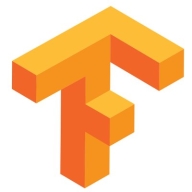

TensorFlow and IBM Watson Machine Learning compete in the machine learning space. TensorFlow should be preferred for users seeking cost-effective solutions due to its comprehensive open-source features, while IBM Watson Machine Learning is superior for enterprises demanding extensive features and willing to invest more.
Features: TensorFlow offers flexibility in model building, a wide array of libraries for deep learning, and scalability for high-performance computations. IBM Watson Machine Learning provides automated model building, excellent natural language processing capabilities, and seamless integration with IBM Cloud.
Room for Improvement: TensorFlow could enhance its user interface for beginners, offer more comprehensive support for non-Python environments, and improve visualization tools. IBM Watson Machine Learning can refine its pricing structure, expand support for non-IBM cloud environments, and reduce complexity in setup and customization.
Ease of Deployment and Customer Service: TensorFlow is straightforward to deploy, particularly in Python-friendly environments, and benefits from a robust community for support. IBM Watson Machine Learning ensures a smooth deployment via IBM Cloud and offers dedicated customer support, providing a reliable environment for large enterprises.
Pricing and ROI: TensorFlow's open-source nature leads to minimal setup costs, appealing to budget-conscious developers seeking high ROI through custom implementations. IBM Watson Machine Learning entails higher initial costs but includes premium features and support, presenting significant ROI for enterprises ready to invest in comprehensive solutions.


IBM Watson Machine Learning helps data scientists and developers accelerate AI and machine-learning deployment. With its open, extensible model operation, Watson Machine Learning helps businesses simplify and harness AI at scale across any cloud.
TensorFlow is an open source software library for high performance numerical computation. Its flexible architecture allows easy deployment of computation across a variety of platforms (CPUs, GPUs, TPUs), and from desktops to clusters of servers to mobile and edge devices. Originally developed by researchers and engineers from the Google Brain team within Google’s AI organization, it comes with strong support for machine learning and deep learning and the flexible numerical computation core is used across many other scientific domains.
We monitor all AI Development Platforms reviews to prevent fraudulent reviews and keep review quality high. We do not post reviews by company employees or direct competitors. We validate each review for authenticity via cross-reference with LinkedIn, and personal follow-up with the reviewer when necessary.